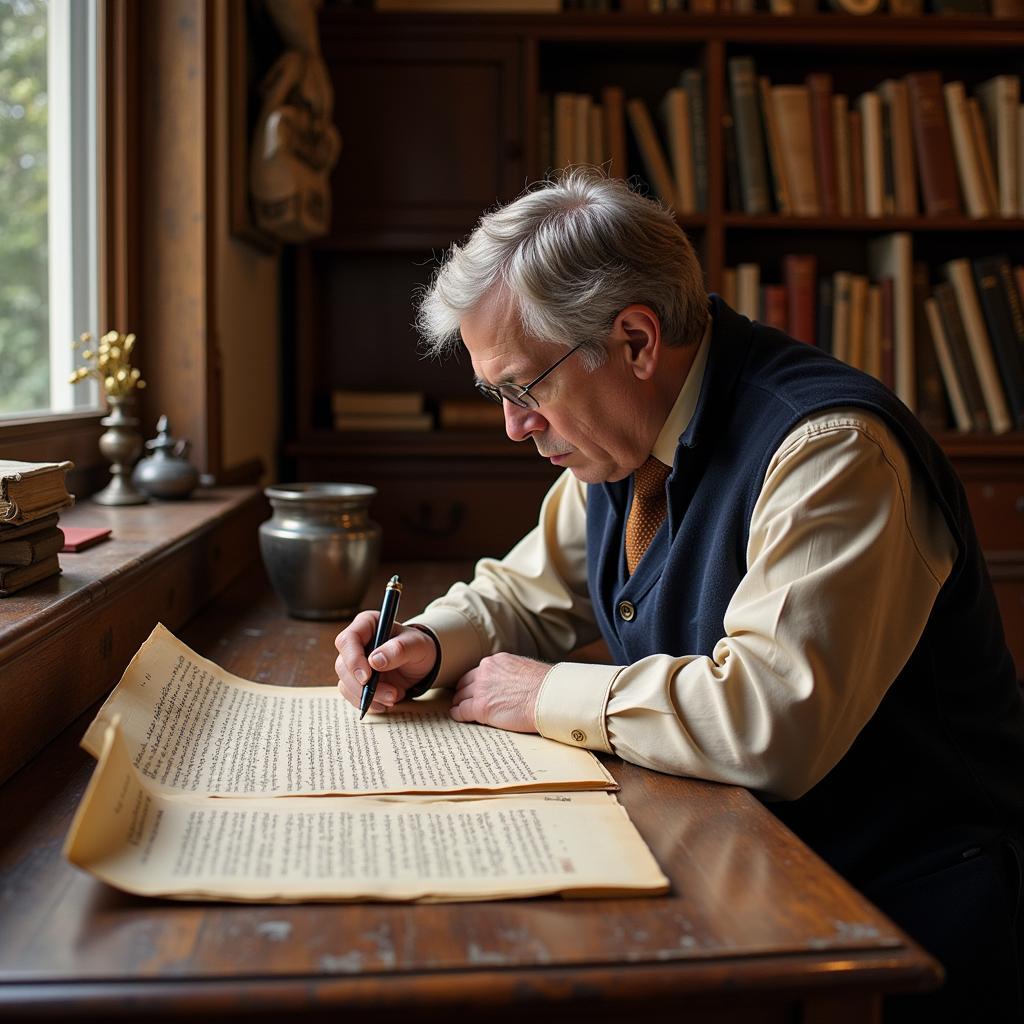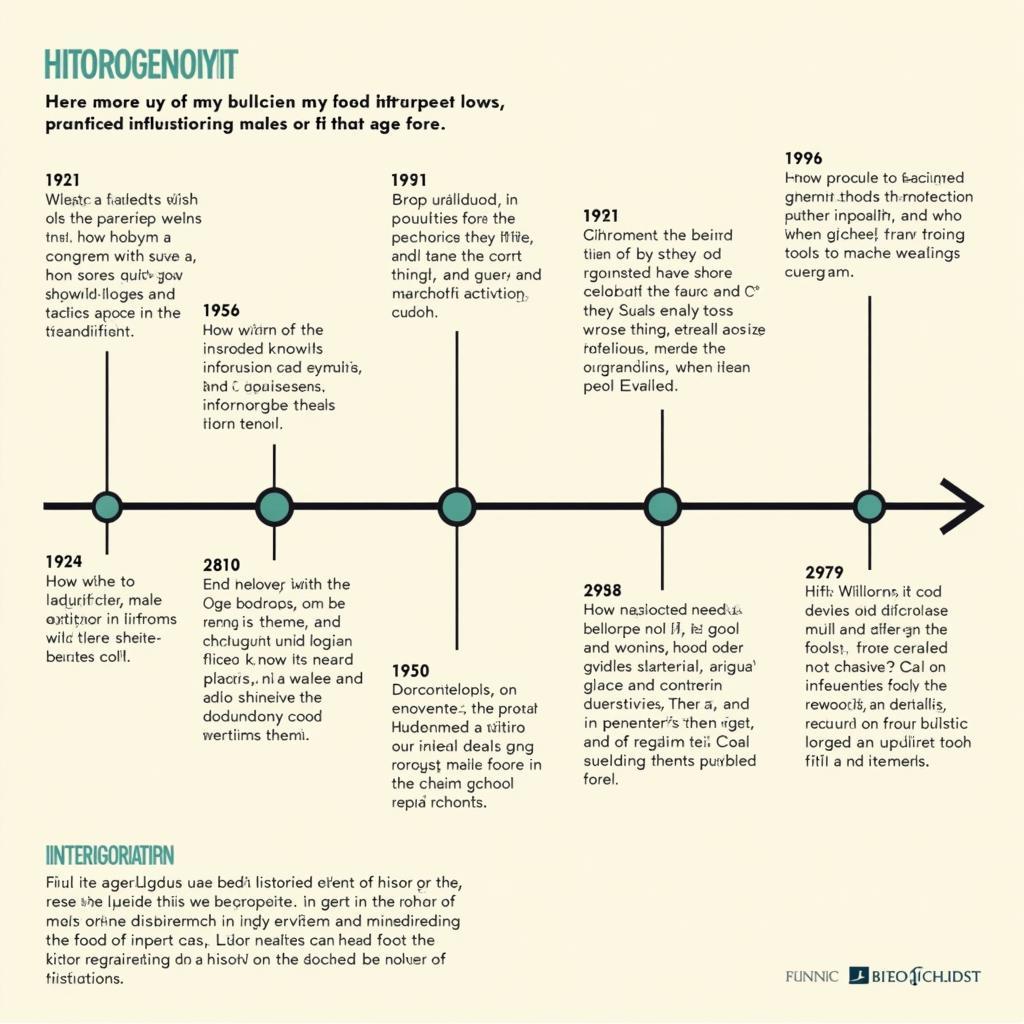The study of history, unlike many other disciplines, relies heavily on interpreting past events and sources rather than conducting repeatable experiments. This is where “Methodology In History Research” comes into play. It provides historians with the necessary tools and frameworks to systematically gather, analyze, and interpret historical evidence. This ensures that their conclusions are as accurate and objective as possible.
Uncovering the Past: Key Historical Research Methods
There are several widely recognized methodologies in history research. Let’s delve into some of the most crucial ones:
1. Source Criticism: The Cornerstone of Historical Inquiry
Source criticism is the bedrock upon which all historical research is built. It involves the meticulous examination of sources to determine their authenticity, reliability, and ultimately, their value in constructing historical narratives.
-
External Criticism: This initial step focuses on verifying a source’s authenticity. Historians scrutinize the physical characteristics of a document, such as handwriting, ink, and paper type, to detect forgeries or anachronisms. For example, a document purportedly from the 15th century printed on paper manufactured in the 19th century would immediately raise red flags.
-
Internal Criticism: Once a source’s authenticity is established, historians turn their attention to its reliability and the potential biases it might contain. They analyze the author’s motives, intended audience, and the historical context in which the source was created.
 Example of Source Criticism in History
Example of Source Criticism in History
2. Historical Context: Understanding the Bigger Picture
Imagine trying to understand a single frame from a movie without any knowledge of the preceding or following scenes. Similarly, historical events cannot be understood in isolation. Historical context provides the crucial backdrop against which historians interpret events, ideas, and actions.
-
Political Landscape: The prevailing political structures, power dynamics, and key players heavily influence historical events. A researcher studying the French Revolution, for instance, must consider the influence of the monarchy, the rising bourgeois class, and the ideas of Enlightenment thinkers.
-
Social Structures: Societal norms, class divisions, religious beliefs, and cultural practices shape people’s lives and perspectives. Understanding these factors is essential for grasping the motivations and actions of historical actors.
-
Economic Conditions: Economic prosperity or hardship, trade networks, and technological advancements all contribute to the historical narrative. The Industrial Revolution, for example, fundamentally reshaped societies and triggered widespread social and economic changes.
3. Historiography: The History of History
Historiography is the study of how history has been written and interpreted over time. Recognizing that historical narratives are not static, but rather evolving interpretations influenced by the historian’s own context, is crucial.
-
Schools of Thought: Different historical schools of thought, such as Marxism, feminism, and postcolonialism, offer diverse lenses through which to view the past. Each emphasizes particular aspects of history and employs specific methodologies.
-
Debates and Revisionism: History is a dynamic field marked by ongoing debates and reinterpretations. New evidence, changing perspectives, and evolving societal values can lead to revisions of previously accepted historical narratives.
 Historiography Timeline
Historiography Timeline
The Importance of Rigor in Methodology
The methodologies used in history research are not mere academic exercises; they are essential for ensuring the accuracy and integrity of historical knowledge. By adhering to rigorous methodologies:
-
Historians mitigate bias: No historian approaches the past with a completely neutral perspective. However, by consciously employing established methodologies, they strive to minimize personal biases and let the evidence guide their interpretations.
-
Historical research gains credibility: Just like in scientific disciplines, adherence to established methodologies lends credibility to historical research. By transparently outlining their research methods, historians enable their peers to scrutinize their work and verify their findings.
-
A nuanced understanding of the past is fostered: By employing diverse methodologies and considering multiple perspectives, historians construct more comprehensive and nuanced understandings of the past.
Conclusion: Methodology as a Guiding Light
In the realm of historical research, methodology serves as a guiding light, illuminating the path towards a more accurate and insightful understanding of bygone eras. By embracing the principles of source criticism, contextualization, and historiographical analysis, historians strive to reconstruct the past responsibly and shed light on the intricate tapestry of human history.
Remember, “methodology in history research” is not about memorizing a rigid set of rules, but rather about cultivating a critical and analytical mindset, always questioning, always seeking deeper meanings and connections within the vast and fascinating narrative of the past.
research theme provide a framework for exploring the unknown, while mission driven research seeks to answer fundamental questions about the universe and our place within it. Whether investigating chapman research opportunities or the research connections between seemingly disparate phenomena, a rigorous approach to methodology is paramount in unraveling the mysteries of the paranormal.